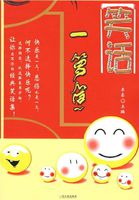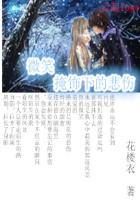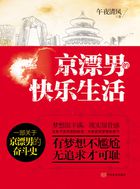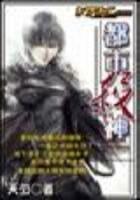Mr. Binney argues as follows: "The conclusion of the whole matter is this--that the Constitution itself is the law of the privilege and of the exception to it; that the exception is expressed in the Constitution, and that the Constitution gives effect to the act of suspension when the conditions occur; that the conditions consist of two matters of fact--one a naked matter of fact; and the other a matter-of-fact conclusion from facts: that is to say, rebellion and the public danger, or the requirement of public safety." By these words Mr. Binney intends to imply that the Constitution itself gave the privilege of the writ of habeas corpus, and itself prescribes the taking away of that privilege under certain circumstances. But this is not so. The Constitution does not prescribe the suspension of the privilege of the writ under any circumstances. It says that it shall not be suspended except under certain circumstances. Mr.
Binney's argument, if I understand it, then goes on as follows: As the Constitution prescribes the circumstances under which the privilege of the writ shall be suspended--the one circumstance being the naked matter of fact rebellion, and the other circumstance the public safety supposed to have been endangered by such rebellion, which Mr. Binney calls a matter-of-fact conclusion from facts--the Constitution must be presumed itself to suspend the privilege of the writ. Whether the President or Congress be the agent of the Constitution in this suspension, is not matter of moment. Either can only be an agent; and as Congress cannot act executively, whereas the President must ultimately be charged with the executive administration of the order for that suspension, which has in fact been issued by the Constitution itself, therefore the power of exercising the suspension of the writ may properly be presumed to be in the hands of the President and not to be in the hands of Congress.
If I follow Mr. Binney's argument, it amounts to so much. But it seems to me that Mr. Binney is wrong in his premises and wrong in his conclusion. The article of the Constitution in question does not define the conditions under which the privilege of the writ shall be suspended. It simply states that this privilege shall never be suspended except under certain conditions. It shall not be suspended unless when the public safety may require such suspension on account of rebellion or invasion. Rebellion or invasion is not necessarily to produce such suspension. There is, indeed, no naked matter of fact to guide either President or Congress in the matter;and therefore I say that Mr. Binney is wrong in his premises.
Rebellion or invasion might occur twenty times over, and might even endanger the public safety, without justifying the suspension of the privilege of the writ under the Constitution. I say also that Mr.
Binney is wrong in his conclusion. The public safety must require the suspension before the suspension can be justified; and such requirement must be a matter for judgment and for the exercise of discretion. Whether or no there shall be any suspension is a matter for deliberation--not one simply for executive action, as though it were already ordered. There is no matter-of-fact conclusion from facts. Should invasion or rebellion occur, and should the public safety, in consequence of such rebellion or invasion, require the suspension of the privilege of the writ, then, and only then, may the privilege be suspended. But to whom is the power, or rather the duty, of exercising this discretion delegated? Mr. Binney says that "there is no express delegation of the power in the Constitution?"I maintain that Mr. Binney is again wrong, and that the Constitution does expressly delegate the power, not to the President, but to Congress. This is done so clearly, to my mind, that I cannot understand the misunderstanding which has existed in the States upon the subject. The first article of the Constitution treats "of the legislature." The second article treats "of the executive?" The third treats "of the judiciary." After that there are certain "miscellaneous articles" so called. The eighth section of the first article gives, as I have said before, a list of things which the legislature or Congress shall do. The ninth section gives a list of things which the legislature or Congress shall not do. The second item in this list is the prohibition of any suspension of the privilege of the writ of habeas corpus, except under certain circumstances. This prohibition is therefore expressly placed upon Congress, and this prohibition contains the only authority under which the privilege can be constitutionally suspended. Then comes the article on the executive, which defines the powers that the President shall exercise. In that article there is no word referring to the suspension of the privilege of the writ. He that runs may read.
I say, therefore, that Mr. Lincoln's government has committed a breach of the Constitution in taking upon itself to suspend the privilege; a breach against the letter of the Constitution. It has assumed a power which the Constitution has not given it--which, indeed, the Constitution, by placing it in the hands of another body, has manifestly declined to put into the hands of the Executive; and it has also committed a breach against the spirit of the Constitution. The chief purport of the Constitution is to guard the liberties of the people, and to confide to a deliberative body the consideration of all circumstances by which those liberties may be affected. The President shall command the army; but Congress shall raise and support the army. Congress shall declare war.















